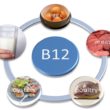Your heart or cardiac rate is the number of times your heart beats in a give minute. This is an important indicator of heart health. Unfortunately, a lot of people don’t know much about heart rates and what its variations or fluctuations may say about their health in general.
Heart rates are influenced by each person’s activity levels, body size, emotions, and even medications they are taking at the time. In general, the average pulse rate for a healthy rate ranges from 60-100 beats per minute. However this may change depending on a lot of factors.
Your heart rates get elevated when you are subjected to strenuous activities or if you are undergoing severe anxiety attacks or emotional meltdowns. This is because your heart pumps more oxygen-rich blood to the cells of your body to cope with the stress you are subjecting it to. Heart rates can be taken by measuring your pulses. One of the easiest ways to get it is to get the number of your pulses at your wrist.
1. Myth: There is one normal value for blood pressure and heart rate.
There are guidelines in what is considered normal values; however, this may vary from one person to another. Optimal BP (blood pressure) is roughly 120 mmHg systolic over 80 mmHg diastolic. The goal with heart rates is around 60-100 bpm (beats per minute). Again your “normal” may be different from those of others, so make it a point to consult with your doctor for you to know your baseline values.
2. Myth: A resting heart rate of 50-90 bpm is a cause for worry.
A resting heart rate at this range does not equate to having a weaker heart. Studies have shown that people who tend to exercise more may have a resting heart rate of less than 60 bpm. This will only be a cause of alert if accompanied by other symptoms such as fainting spells, giddiness and reduced levels of activity.
3. Myth: An erratic heart rate is a precursor to a heart attack.
Irregular heart rate is never a sign of impending heart attack. It may accompany a heart attack but it can also rise on its own due to a lot of other factors.
4. Myth: A normal heart rate indicates normal blood pressure.
No it does not. Someone may have normal heart rates but still have high blood pressure or vice versa.
5. Myth: A fast pulse means that you are stressed
When a person is under stress, the body releases chemicals that can elevate the heart rate. However, when your pulses are fast, it does not always mean that you are stressed, it could be because of other factors.
6. Myth: You burn more fats with higher heart rates
You may burn more calories at a higher heart rate, but with fat disintegration, the percentage could be slightly lower.
7. Myth: People have a predetermined number of heart beats in their lifetime.
No, they don’t.














